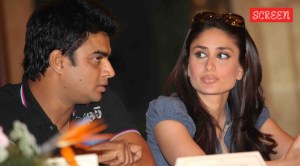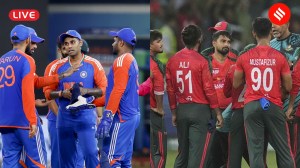7 yrs on, UN ready with charter on nuke-terror
After seven years of negotiations, the UN finalised a convention to halt nuclear terrorism on Friday, paving the way for broader global agre...

After seven years of negotiations, the UN finalised a convention to halt nuclear terrorism on Friday, paving the way for broader global agreement to fight terrorist groups.
The Convention on the Suppression of Acts of Nuclear Terrorism is meant to stop rogue groups from using nuclear weapons. It criminalises individuals’ possession of radioactive material or devices, requires nations to prosecute or extradite people who threaten others while possessing such materials, and calls for exchange of information and assistance between governments.
The treaty does not, however, prohibit nations from using nuclear weapons militarily. ‘‘Nuclear terrorism is one of the most urgent threats of our time,’’ said Secretary-General Kofi Annan, who had made the completion of the treaty one of the goals in his programme of reform of the world body, which he introduced last month. ‘‘Even one such attack could inflict mass casualties and change our world forever. That prospect should compel all of us to do our part to strengthen our common defenses.’’
The General Assembly is expected to endorse the convention and open it for signature in September. It needs ratifications by at least 22 members to become international law, and would be the 13th such global treaty on terrorism. Annan has called for an umbrella treaty, the Comprehensive Convention on Terrorism, to be finalised in mid-2006. The Russian Federation introduced the nuclear terrorism treaty seven years ago to keep so-called ‘‘loose nukes’’ from falling into the hands of terrorist groups. Then, former national security chief Alexander I. Lebed estimated that about 100 Russian nuclear weapons unaccounted for.
Last year alone, the IAEA confirmed nearly 100 incidents of trafficking in nuclear and radioactive material, and sounded the alarm after nuclear facilities in Iraq were looted after the US-led invasion. — Reuters
Union indulging in smear campaign: Nair
United Nations: The beleaguered head of UN’s corruption watchdog has hit back at the world body, accusing its employees union of indulging in smear campaign against him and questioning the reopening of an inquiry into charges of favouritism which were earlier found to be without substance. Dileep Nair, head of the Office of Internal Oversight Services (OIOS), in a statement yesterday accused the staff union of smear campaign after the UN decided to launch an outside review of the allegations of improper promotions and ‘‘sexual contact.’’ — PTI
Photos


- 01
- 02
- 03
- 04
- 05





























